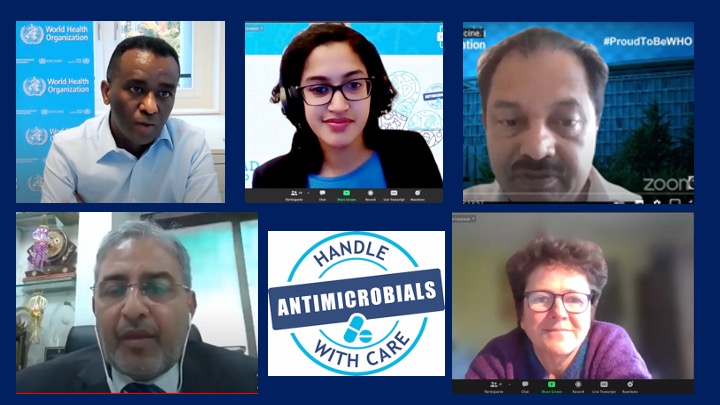Shobha Shukla, Bobby Ramakant - CNS

Raise Awareness, Stop Antimicrobial Resistance: World Antimicrobial Awareness Week 18-24 November 2021
(Image by CNS) Details DMCA
Medicines which aim to relieve pain and suffering, may cure us of diseases and avert untimely deaths, are at increasing risk of becoming ineffective against disease-causing microbes. Antimicrobial resistance occurs when microbes such as bacteria, viruses, fungi, and parasites no longer respond to medicines. This makes common infections harder to treat, more expensive to treat, more difficult to treat, and increases the risk of disease spread, severe illness and death.
Antimicrobial resistance emerges naturally, usually through genetic changes in microbes. However, the overuse and misuse of antimicrobials (antibiotic, antiviral, antifungal, and antiparasitic medications) have dangerously accelerated antimicrobial resistance.
Antimicrobial resistance is undermining a century of progress in medicine
Joseph Thomas who leads the World Health Organization (WHO)'s Antimicrobial Stewardship and Awareness, said "Antimicrobial resistance is undermining a century of progress in medicine, infections that were previously treatable and curable with our drugs are becoming (or at risk of becoming) incurable (as medicines are not working against infections). Even common infections are becoming risky and a problem. Surgeries are becoming risky. Cause of all this is found in the behaviour of human beings who are misusing or overusing antimicrobials. We must ensure that when we are sick we are only taking antimicrobials on medical advice and medical supervision."
When we use antimicrobials irresponsibly or inappropriately - for example, taking antibiotics for a viral infection like a cold, or taking antimicrobials without a diagnosis from a medical professional - fungi, bacteria, viruses and parasites have the opportunity to develop resistance to the medicines.
"Having good infection control is key to controlling antimicrobial resistance (AMR). So if infection control is good along with water, sanitation and hygiene - in clinical settings, veterinary settings and in food producing settings - it will help to stop the spread of infection and this in turn will reduce the use of antimicrobials to treat those infections. Use of poor quality drugs and/or unnecessary use of antimicrobials in humans, animals and in food production is also fuelling AMR" said Dr Haileysus Getahun, Director of the WHO Department of Global Coordination and Partnership on Antimicrobial Resistance (AMR). Dr Getahun is also the Director of Joint Tripartite Secretariat on AMR (comprising United Nations Food and Agriculture Organization - FAO, World Organization for Animal Health - OIE, and WHO) that coordinates the joint work of the organisations across the #OneHealth spectrum.
(Note: You can view every article as one long page if you sign up as an Advocate Member, or higher).





